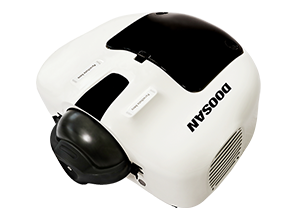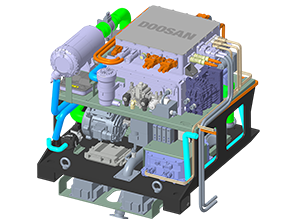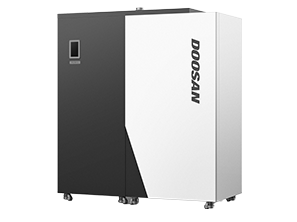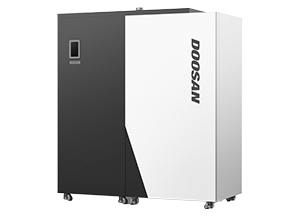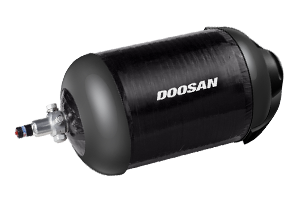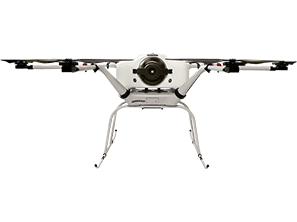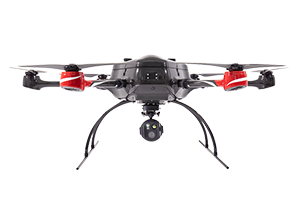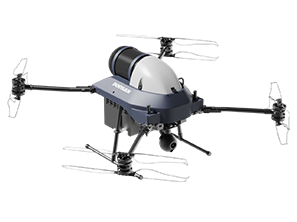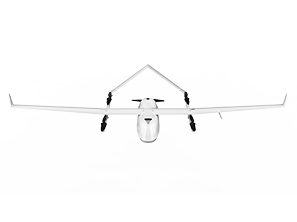News
Doosan Mobility Innovation expands business area to ground mobility
- Joint development of hydrogen fuel cell-based robot with a Chinese robotics company
2021.02.09
Doosan Mobility Innovation (DMI) is expanding business area to ground mobility, following hydrogen drones.
DMI announced on the 9th that it signed an MOU with CITIC HIC KAICHENG INTELLIGENCE, a Chinese robotics company, to jointly develop hydrogen-powered robots for activities such as fire control and field monitoring.
CITIC HIC KAICHENG INTELLIGENCE is a subsidiary of China's Zhongshin Group, which produces smart equipment and robots. It owns over 50 types of proprietary special robots and is a leading player in firefighting with over 70% of market share in China.
The two companies plan to jointly develop a firefighting robot used for fire control while monitoring the fire site and an industrial robot that performs monitoring functions in general industrial sites based on hydrogen fuel cell technology. Furthermore, they decided to develop sales channels and conduct sales activities in China and overseas together. The two companies are aiming to release prototypes in the first half of this year and mass-produce products within this year.
With this agreement, DMI, which boasts unrivaled products in the field of hydrogen drones, will expand its hydrogen fuel cell business to ground mobility sector. In particular, since the hydrogen robot for firefighting will be used in harsh environment such as in fire, a high level of durability is required, and when the development is completed, the scope of application can be broadened to various fields of mobility. This is expected to further expand DMI's business area.
Doo Soon Lee, CEO of DMI, said, "The use of hydrogen fuel cells not only reduce body weight and increase operation time, but help the environment." He added, "DMI will strive to grow by securing stable customer base in China's firefighting robot market and expand applications of the hydrogen fuel cell technology."
According to China's industry experts, about 4,000 to 5,000 units of firefighting robots are sold annually and the market is growing rapidly, recording a revenue of 136 billion won in 2018, 280 billion won in 2019, and 600 billion won in 2020.
DMI announced on the 9th that it signed an MOU with CITIC HIC KAICHENG INTELLIGENCE, a Chinese robotics company, to jointly develop hydrogen-powered robots for activities such as fire control and field monitoring.
CITIC HIC KAICHENG INTELLIGENCE is a subsidiary of China's Zhongshin Group, which produces smart equipment and robots. It owns over 50 types of proprietary special robots and is a leading player in firefighting with over 70% of market share in China.
The two companies plan to jointly develop a firefighting robot used for fire control while monitoring the fire site and an industrial robot that performs monitoring functions in general industrial sites based on hydrogen fuel cell technology. Furthermore, they decided to develop sales channels and conduct sales activities in China and overseas together. The two companies are aiming to release prototypes in the first half of this year and mass-produce products within this year.
With this agreement, DMI, which boasts unrivaled products in the field of hydrogen drones, will expand its hydrogen fuel cell business to ground mobility sector. In particular, since the hydrogen robot for firefighting will be used in harsh environment such as in fire, a high level of durability is required, and when the development is completed, the scope of application can be broadened to various fields of mobility. This is expected to further expand DMI's business area.
Doo Soon Lee, CEO of DMI, said, "The use of hydrogen fuel cells not only reduce body weight and increase operation time, but help the environment." He added, "DMI will strive to grow by securing stable customer base in China's firefighting robot market and expand applications of the hydrogen fuel cell technology."
According to China's industry experts, about 4,000 to 5,000 units of firefighting robots are sold annually and the market is growing rapidly, recording a revenue of 136 billion won in 2018, 280 billion won in 2019, and 600 billion won in 2020.


